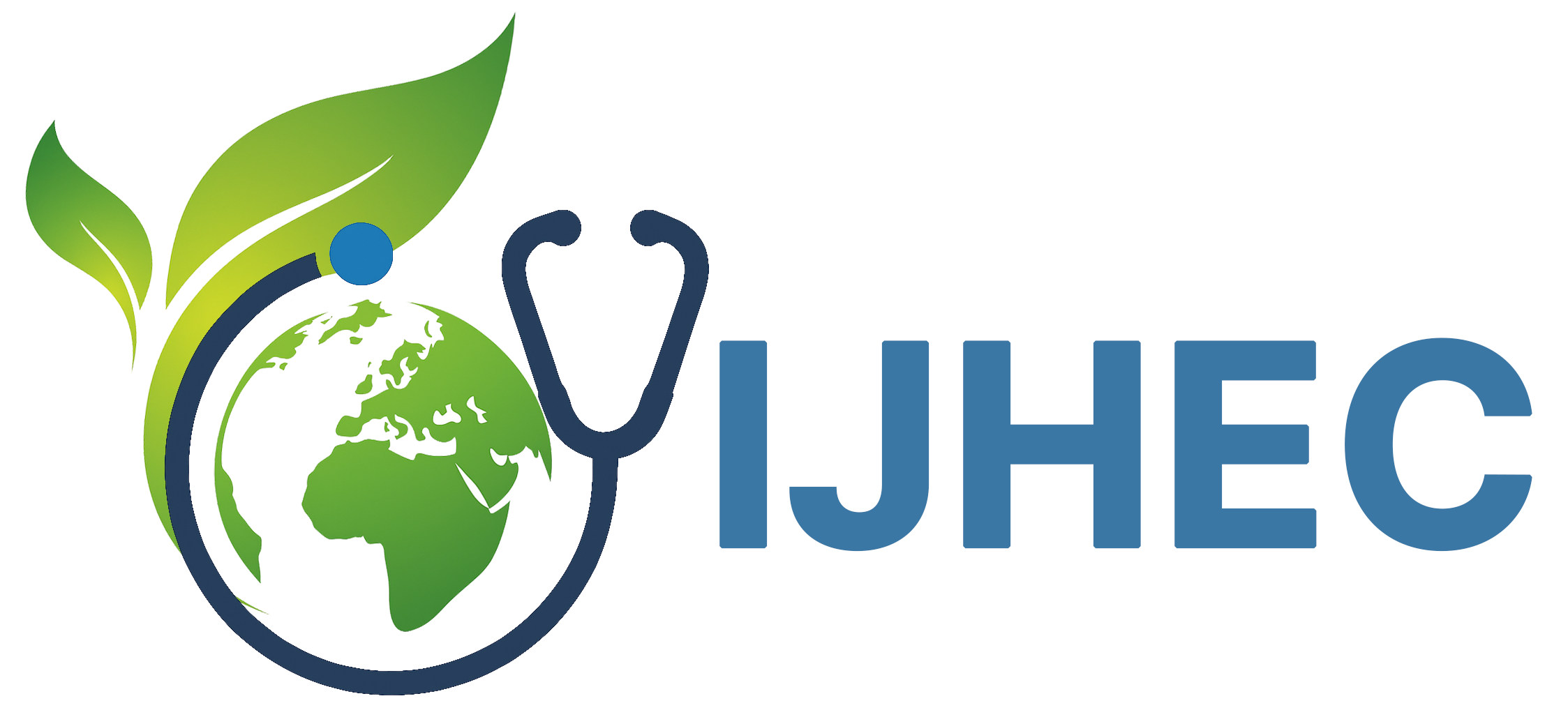Publication Ethics and Malpractice Statement
The Publication Ethics and Publication Malpractice Statement of the Interdisciplinary Journal of Health, Environment and Computation is largely based on the guidelines and standards set forth by the Committee on Publication Ethics (COPE). The following outlines the relevant responsibilities and expectations for authors, reviewers, and editors of the journal are detailed.
Authors Responsibilities
- Authors submitting to this journal must ensure that their work is original, not previously published, and not under consideration elsewhere. Proper acknowledgment and citation of others' work is mandatory. Plagiarism or redundant publication is considered unethical and may lead to rejection or retraction.
- Research manuscripts must present accurate data and an objective analysis. Sufficient detail should be included to allow replication. Fabrication, falsification, or deliberate misrepresentation of findings is strictly prohibited.
- Authors must disclose all sources of funding and any potential conflicts of interest, especially in cases involving commercial products
- Only individuals who have made significant contributions to the research should be listed as authors. Others should be acknowledged appropriately. The corresponding author must ensure that all co-authors have approved the final version and agreed to its publication.
- If an author discovers a serious error in a published work, they are obliged to inform the editors promptly for correction or retraction.
- All accepted articles will be published under the Creative Commons Attribution-ShareAlike 4.0 International (CC BY-SA 4.0) license, promoting open, ethical, and widely accessible scholarly communication.
Reviewers Responsibilities
- Reviewers are integral to upholding the quality, transparency, and academic rigor of the Interdisciplinary Journal of Health, Environment and Computation. We are deeply grateful for the time, effort, and expertise they contribute on a voluntary basis to support the peer review process.
- Recognizing that most reviewers have demanding professional responsibilities, The Interdisciplinary Journal of Health, Environment and Computation respects their right to decline review requests when time constraints or other obligations prevent them from conducting a timely and thorough review. Reviewers are also expected to decline assignments if the manuscript falls outside their area of expertise or if they feel unqualified to provide an informed assessment.
- Reviewers must avoid any actual or perceived conflict of interest, including competitive, collaborative, financial, or institutional relationships with any of the authors or organizations associated with the manuscript. If such a situation arises, reviewers should immediately inform the editorial office and recuse themselves from the review process.
- All materials submitted for review must be treated as confidential documents. Reviewers must not share, discuss, or disclose any aspect of the manuscript with others without explicit authorization from the journal Editorial Board. Information or ideas obtained through the peer review process must never be used for personal or professional gain
- Reviewers are expected to provide objective, constructive, and respectful feedback. Criticism should be scholarly and not personal. Clear reasoning and evidence should support all recommendations. Even if a manuscript is not deemed suitable for publication, reviewers are encouraged to offer comments that will help authors improve the quality of their work.
- It is also the reviewers’ responsibility to identify relevant but uncited literature, flag instances of inadequate source attribution or potential plagiarism, and alert the editorial team to any ethical issues, including concerns related to research misconduct, data falsification, or lack of ethical approvals.
- Reviewers contributing to the journal are expected to follow the ethical guidelines set forth by the Committee on Publication Ethics (COPE) and to help maintain the journal’s commitment to excellence in interdisciplinary scholarship across health, environment, and computation.
Reviewers Guideline
Editors Responsibilities
- The Editorial Board of the Interdisciplinary Journal of Health, Environment and Computation bears the ultimate responsibility for ensuring the academic integrity, ethical standards, and overall quality of all published content. Editors are entrusted with making fair and unbiased decisions regarding the acceptance, revision, or rejection of submitted manuscripts, based on the journal’s editorial policies and guided by legal and ethical standards, including those related to libel, copyright, and plagiarism.
- All submissions are evaluated solely on their scholarly merit, originality, scientific accuracy, relevance to the journal’s interdisciplinary scope, and contribution to knowledge—irrespective of the authors’ race, gender, sexual orientation, religion, nationality, political views, or institutional affiliation.
- Confidentiality is a fundamental principle of the editorial process. Editors must not disclose any details about a manuscript under review to anyone other than the corresponding author, assigned reviewers, and relevant editorial board members. Editors are responsible for ensuring the integrity of the double-blind peer review process, by keeping author and reviewer identities confidential during the evaluation.
- Editors are also expected to assess whether submitted research meets ethical standards and to ensure that any potential harms to subjects, participants, or communities have been minimized and are outweighed by the potential benefits. If there is any doubt regarding the ethical conduct of a study, editors may request clarification or official documentation, such as approval from an institutional ethics committee or review board.
- As The Interdisciplinary Journal of Health, Environment and Computation welcomes global submissions, editors acknowledge that ethical regulations may differ across regions. When necessary, editors will seek additional information to ensure that the research adheres to acceptable ethical practices both locally and internationally.
- In matters related to research misconduct, publication errors, or ethical concerns, editors will act in accordance with the Committee on Publication Ethics (COPE) guidelines. This includes issuing corrections, retractions, or expressions of concern when justified.
- The journal editorial team is committed to maintaining a transparent, fair, and responsible publishing environment, promoting high-quality interdisciplinary research across health sciences, environmental studies, and computational innovation.
